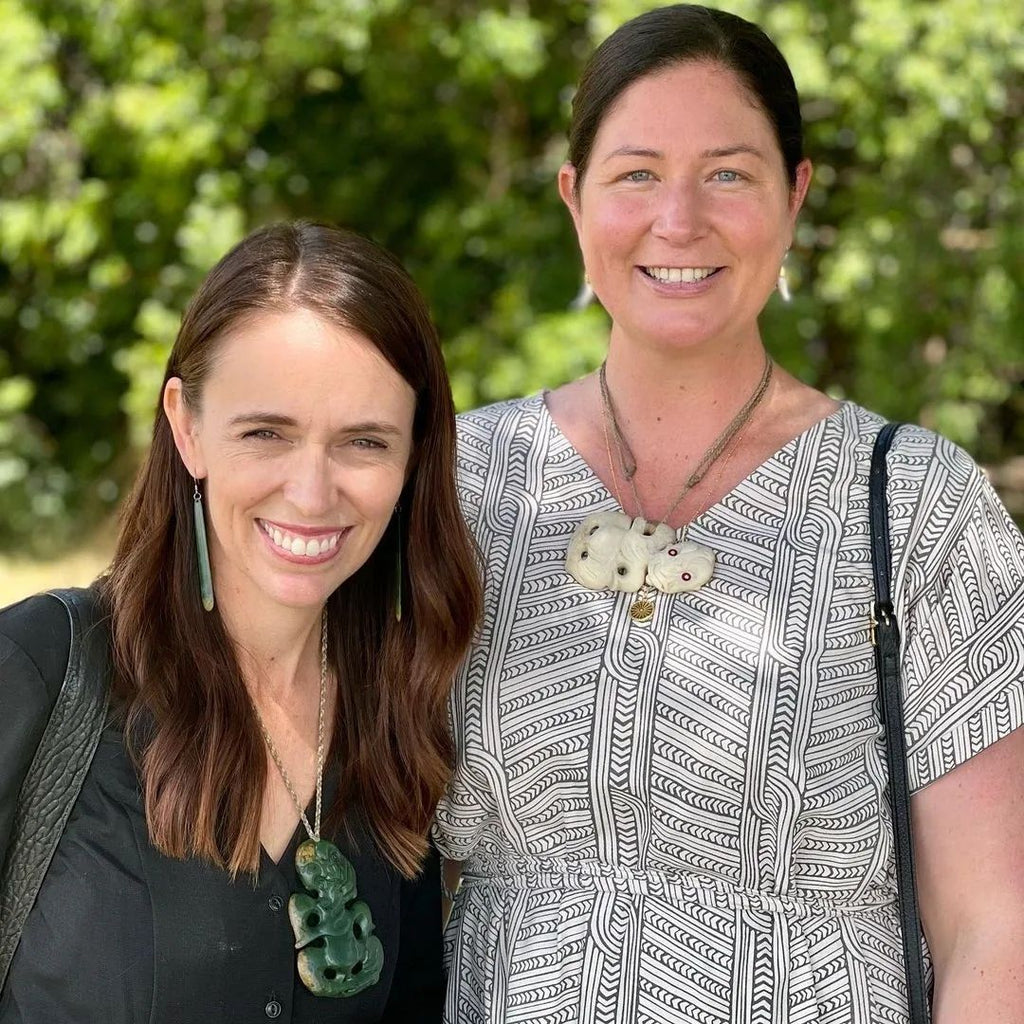When the personal becomes political

The other night we shared a photo of Willow Jean Prime wearing our Manawa Titī dress that was captured in connection to the Waitangi commemorations. She was standing next to Prime Minister Jacinda Ardern.
And to be honest, I wasn’t prepared and hadn’t fully anticipated the reaction or some of the backlash that we’d encounter by sharing the image.

People ‘unfollowing. Raru about the broader context of the photo- a staged photo opportunity of elected government officials and tangata whenua captured in Northland amongst the ongoing restrictions and relentless impact of this pandemic. (The comments above are a savory selection of the ones that still maintained community guidelines :) )
It gave me a moment to pause, and to reflect. On politics and its impact on our community and communities. On relationships and the way we share kōrero.
And funnily, it reminded me of the first words of the first lecture of a Political Science paper at university.
“Everything is political, whether you have peanut butter or vegemite on your toast in the morning. That is political”. Each small, and seemingly unimportant decision we make- from breakfast choices, to clothing choices and all the way up to casting a vote for a political party, creates ripples that reverberate through the fabric of our society and world.
The posting and re-sharing of a Member of Parliament wearing our dress, that is political.
On an occasion that was intended as political and media fodder, the fact that she chose to wear a dress designed and made in Aotearoa is political.
The fact that the designs on that dress echo of whakapapa and relationships and transitions, is political.
The fact that the fabric was grown organically, harvested sustainably, traded sustainably (fair trade and fair wages), is political.
The fact that the designer is a wahine is political.
The fact that the designer is tangata whenua, is political.
The fact that the labour that went into that garment- from the harvesting of the cotton in India, to the cutting and sewing of the garment in Ōtautahi, to the design and conception of this dress, was done primarily by wahine is political.
The fact that everyone who touched this garment from seed to finishing was paid a fair wage and under safe conditions in an industry rife with exploitation is political.
And for this reason, we celebrate the details. The dress, that is sure, ‘just a dress’, but is a vote for the kind of world I want my daughters to inherit.
Each small daily act is political. We are each complicit in shaping the world our tamariki and decendants will inherit.
And what a privilege and responsibility each small act of life becomes with this in mind.
As the whakataukī says:
Aroha Mai, Aroha atu.
Love recieved, love returned. A dynamic and eternal dance of reciprocity and relationship with one another.

Leave a comment